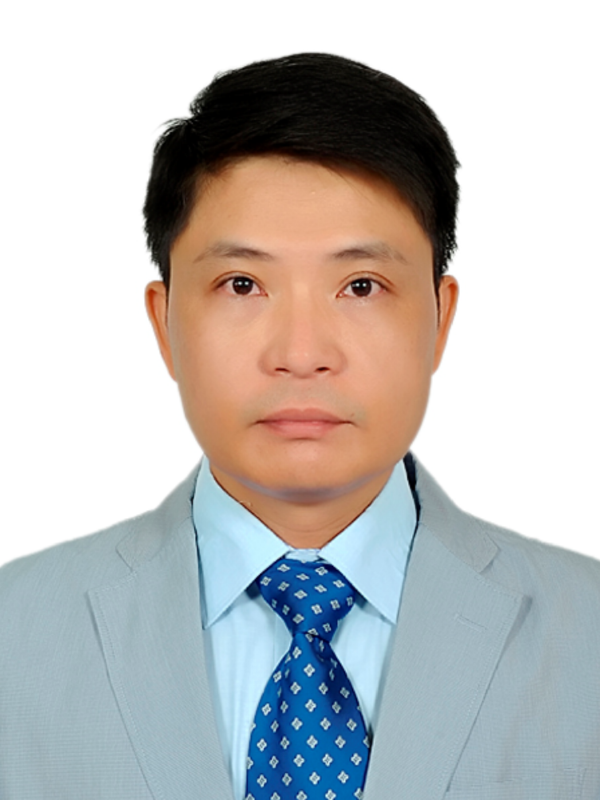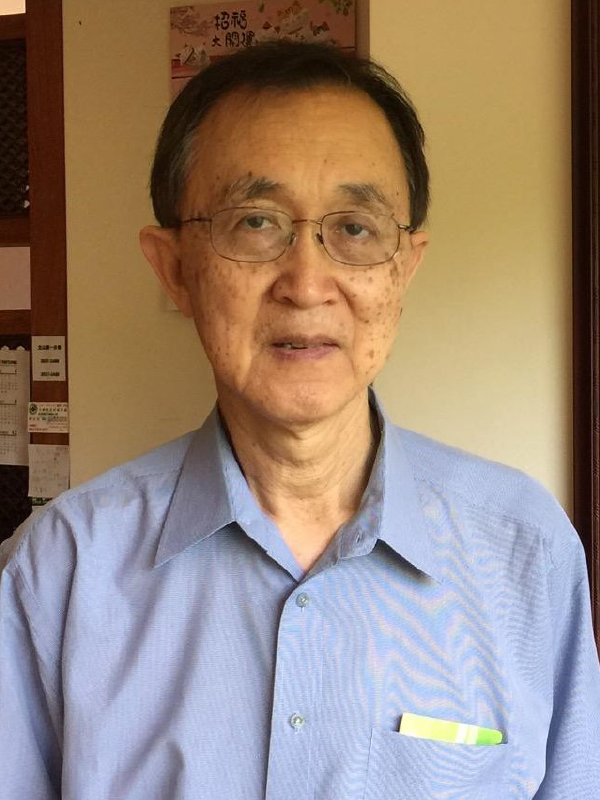SPECIAL SESSIONS
29 June | 30 June | 01 July | 02 July
SS05 – Data Science and Artificial Intelligence in Geosciences
Mon-29 Jun 2020 | 16:00 – 18:00 | Tower D, Emerald
| Conveners: | Sang-Mook LEE, Seoul National University |
| Kenji SATAKE, The University of Tokyo | |
| Byung-Dal SO, Kangwon National University |

|
Alik ISMAIL-ZADEH Karlsruhe Institute of Technology Russian Academy of Sciences “Data-driven Geodynamic Modelling: Success and Challenges” |

|
Gregory BEROZA Stanford University “AI for Earthquake Monitoring” |

|
Gabriele MORRA University of Louisiana at Lafayette “Fresh Outlook in Numerical Methods for Geodynamics” |

|
Axel TIMMERMANN IBS Center for Climate Physics, Pusan National University “Dealing with Big Data in Climate Research” |
SS03 – Space Agency Remote Sensing of the Earth
Tue-30 Jun 2020 | 16:00 – 18:00 | Tower D, Emerald
| Conveners: | Jack KAYE, NASA Earth Science Division |
| Dohyeong KIM, Korea Meteorological Administration - Satellite Planning Division |

|
Pamela SULLIVAN National Oceanic and Atmospheric Administration “NOAA’s Current and Future Space-Based Observing System Enterprise” |

|
Sung-Rae CHUNG Korea Meteorological Administration “Korean Geostationary Satellite System: Applications of New Geophysical Products from Geo-kompsat 2a and 2b” |

|
Hyunjong OH National Meteorological Satellite Center of Korea Meteorological Administration “The Geo-KOMPSAT-2A Data Service” |

|
Tsengdar LEE National Aeronautics and Space Administration “NASA Earth Science Division Status and Plan” |
SS02 – Satellite Radar/SAR Missions for Interdisciplinary Geosciences
Thu-02 Jul 2020 | 08:30 – 10:30 | Tower D, Diamond
| Conveners: | Gerald BAWDEN, National Aeronautics and Space Administration |
| Son NGHIEM, Jet Propulsion Laboratory, California Institute of Technology | |
| Pham Anh TUAN, Vietnam National Space Center, Vietnam Academy of Science and Technology |

|
Shinichi SOBUE Japan Aerospace Exploration Agency “Japan's L-SAR Missions” |

|
Joong-Sun WON Yonsei University “A CAS500 SAR Mission for Water Resource Management and Water-related Disaster Monitoring in Korea” |

|
Thomas ESCH German Aerospace Center (DLR) “Global Urban Monitoring Based on Radar Satellites - with Data from Space to Informed Decisions” |

|
Vu Anh TUAN Vietnam National Space Center “Introduction of Lotusat (x Band Sar) and Potential Application of Sar Data in Viet Nam” |

|
Paul ROSEN Jet Propulsion Laboratory “The NASA-ISRO Synthetic Aperture Radar (NISAR) Mission: Global Observations for Interdisciplinary Science and Applications” |
SS04 – The Geologic Evolution of NE Asia
Thu-02 Jul 2020 | 13:30 – 15:30 | Tower B, Lavender II
| Conveners: | Sang-Mook LEE, Seoul National University |
| Weiwei DING, Key Laboratory of Submarine Geosciences, Second Institute of Oceanography, Ministry of Natural Resources |

|
Alexei IVANOV Institute of the Earth's Crust, Siberian Branch of the Russian Academy of Sciences “Timing of the Mongolia-okhotsk Ocean Closure, Collision and Post-collisional Extension” |

|
Wenjiao XIAO Institute of Geology and Geophysics, Chinese Academy of Sciences “Magmatism and Deformation History Along the Ne Asian Continental Margin from Ca. 95 to 30 Ma: Possible Izanagi-pacific Ridge Subduction in the Early Cenozoic” |

|
Tatsuki TSUJIMORI Tohoku University (DLR) “Tectonic Evolution of Ne Asia: a View from the Bottom of Cratonic Lithosphere” |

|
Moonsup CHO Chungbuk National University “Early Paleozoic Linkage of the Korean Peninsula and Proto-Japan Arc with the North China Craton” |
SS01 – The Asian Monsoon in a Changing Climate
Thu-02 Jul 2020 | 16:00 – 18:00 | Tower B, Lavender II
| Conveners: | Kyung-Ja HA, Pusan National University |
| Johnny CHAN, City University of Hong Kong | |
| Ramesh KRIPALANI, Indian Institute of Tropical Meteorology | |
| Jun MATSUMOTO, Tokyo Metropolitan University / JAMSTEC | |
| Toru TERAO, Kagawa University |

|
Jianping LI Ocean University of China “Atmospheric Energetics of the South China Sea Summer Monsoon and the Relative Roles of South China Sea Summer Monsoon and Enso in IOD Development” |

|
Akio KITOH Japan Meteorological Business Support Center “Monsoon Precipitation Changes Simulated by Large-ensemble MRI-AGCM” |

|
Chih-Pei CHANG National Taiwan University “Boreal Winter Seasonal Prediction of Western Maritime Continent Rainfall During ENSO” |

|
Bin WANG University of Hawaii “Future Change of Monsoon Rainfall Projected by Cmip6 Models” |

|
Krishnan RAGHAVAN Indian Institute of Tropical Meteorology “Behavior of Monsoon Droughts Over India in a Changing Climate” |

|
Rong FU University of California, Los Angeles “The Role of Vegetation in Determining Droughts Over Monsoon Regions” |
WORKSHOPS
AS74 Mini Tutorial for Ensemble Data Assimilation and the Data Assimilation Research TestbedWed-01 Jul 2020 | 08:30 – 10:30 | Tower B, Lavender II
| Conveners: | Soyoung HA, National Center for Atmospheric Research |
| Jeffrey ANDERSON, National Center for Atmospheric Research | |
| Jeff STEWARD, National Center for Atmospheric Research |
|
Data assimilation for an earth system model is the process of combining model
forecasts with observations to produce improved estimates of the model state.
Ensemble filter data assimilation algorithms use a set (ensemble) of model state
estimates to enable the assimilation process.
|
AS75 Climate Prediction: Skills and Errors on Climate Drivers and Response, and Extremes
Thu-02 Jul 2020 | 08:30 – 12:45 | Tower B, Lavender II
| Conveners: | Hyung-Jin KIM, APEC Climate Center |
| Soo-Jin SOHN, APEC Climate Center | |
| Francis Chi Yung TAM, The Chinese University of Hong Kong |
|
There is a growing need in the scientific, operational and climate services communities in developing and utilizing high-quality climate predictions to provide early warnings of high-impact climate events and to take relevant proactive measures. The quality of climate predictions has been evaluated primarily with prediction skills on major climate variables and drivers at regional and global scales. Although such conventional assessment is served as an important guideline for the use of climate predictions, it is also crucial to validate sub-regional prediction skills of remote response and extremes to various climate drivers. In addition, systematic analysis of prediction errors helps improve our knowledge on local and regional climate predictability and, hence, develop indigenous prediction systems. The goal of this session is to discuss the current status of prediction skills and errors on climate drivers, teleconnections and associated climate response, and extremes with time scales of subsesonal, seasonal, inter-annual and beyond, and to address the window of opportunity for advancing climate predictions and techniques. |

